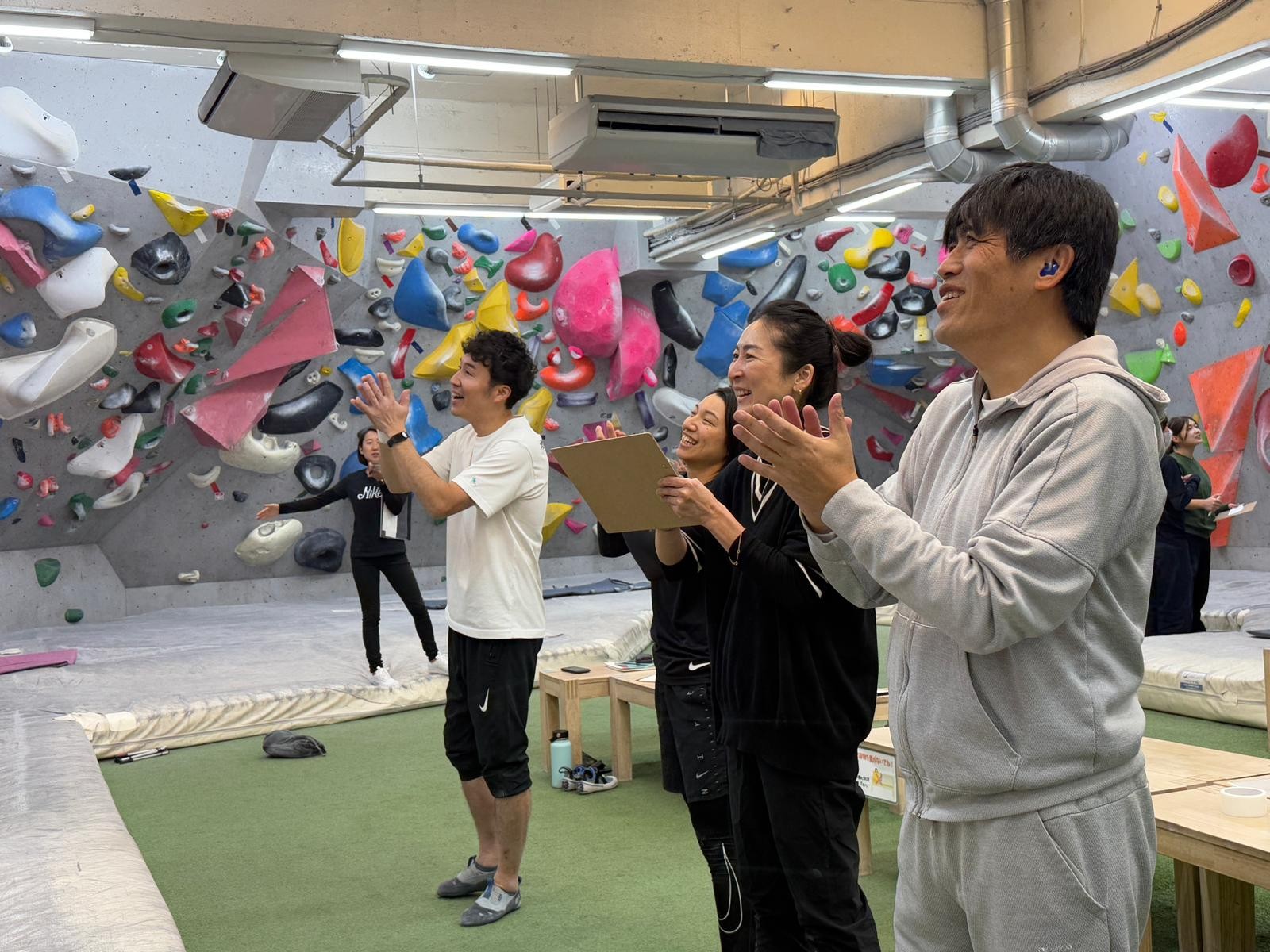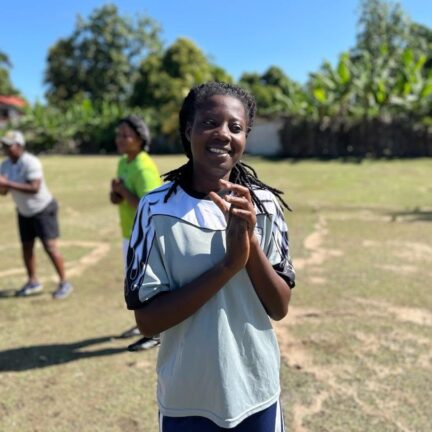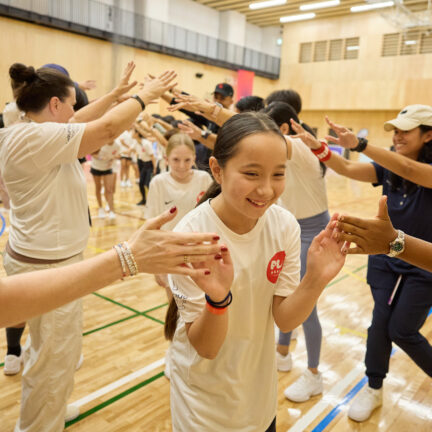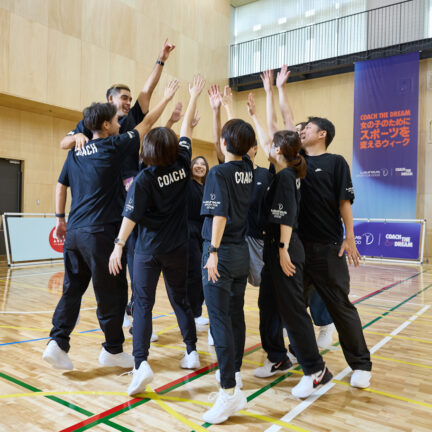Sport leaders and coaches across different programs gathered at a climbing gym in Tokyo, united by a shared desire: to create safe and secure sporting opportunities for girls.
The interactive climbing event in late 2024 was one of several trainings held as part of Play Academy with Naomi Osaka’s Coaching Network Program for Gender Equality in Sport. The sport leaders and coaches explored gender-inclusive coaching practices and mindsets introduced in the ‘Japanese Coaching Guide for Girls’, released in October 2024.
Relieving girls’ anxiety to encourage participation
Creating a safe and secure space for children begins even before the program starts.
Yuki Shigenami of S.C.P. Japan who led the event, emphasized, “It is important to address any negative feelings girls might have about participating in sports programs.”
“Girls may feel nervous visiting unfamiliar places or have concerns about accessibility. We can reassure participants by visiting the venue in advance to gather and share information about access. We should be also creative and adapt existing facilities to make the space more accessible and inclusive. For example, consider changing rooms.”
At the event, temporary curtains were installed in the changing rooms to create private spaces, separate from the standard men’s and women’s facilities. This provided an inclusive changing area for all participants, regardless of gender.
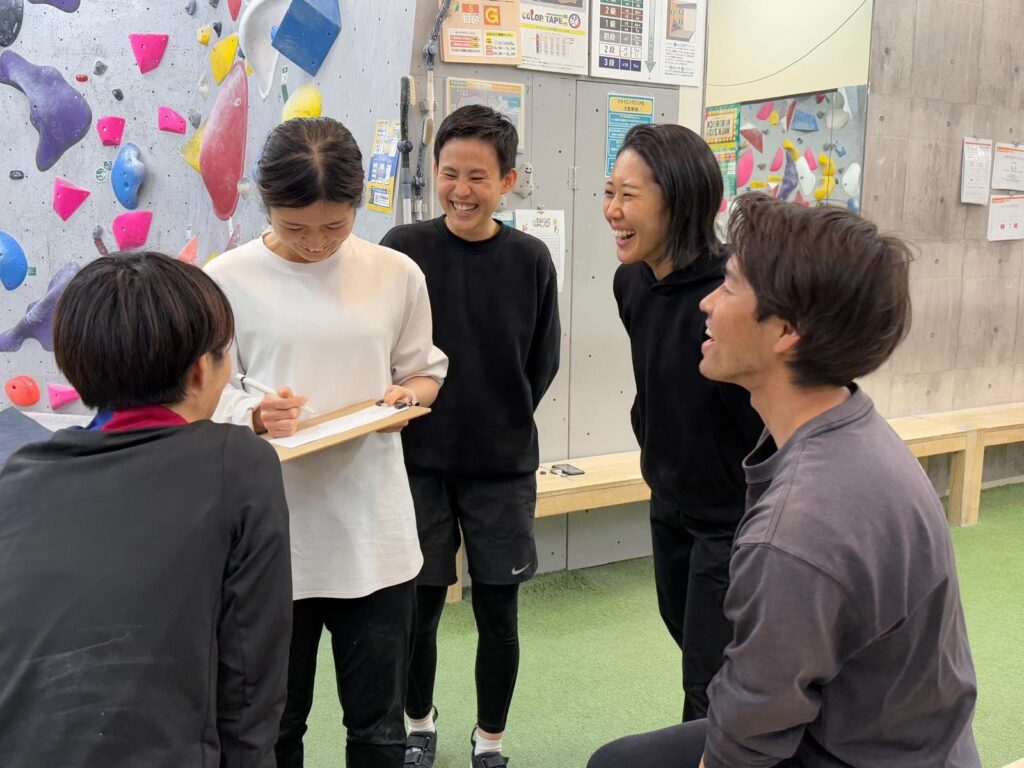
Co-creating a space where girls’ voices are heard
The climbing activity incorporated several unique elements to promote gender inclusion. One example was the approach to grouping participants.
Shigenami explained, “Newcomers often feel nervous when interacting with others for the first time, especially when forming groups. This can be particularly challenging for girls who are participating in sports in a space dominated by boys, leading to negative experiences.”
To address this, the event incorporated interactive activities to form groups, such as lining up in alphabetical order based on the names on their backs.
During the activity, participants were asked questions like, “What is your team’s target score?” and “Are there any rules you would like to add?” The group decided to award points to the team with the best cheering, adding a unique element to the activity.
“By listening to the voices of those present, I want to make them feel like they are part of the team co-creating the program, rather than just participants,” Shigenami said. “Sharing experiences and having their voices heard and reflected in the program fosters dialogue. As a facilitator, I find it exciting to incorporate diverse ideas and create something new together.”
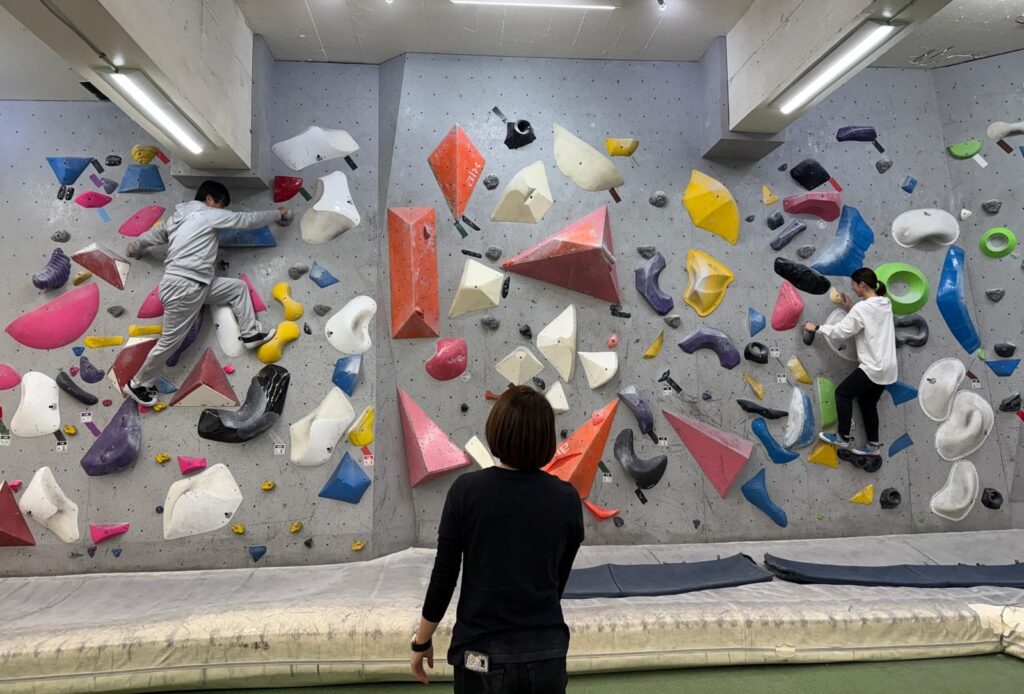
Another key aspect of the program was its focus on “achieving team goals” rather than “competing with others.”
Yui Shirai, a project manager at the NPO Monkey Magic, which co-delivered the event, highlighted the values of providing opportunities to set, pursue and achieve goals in their program activities:
“While competition can provide temporary motivation, it often leads to constant comparison and a failure to recognize their own value, hindering the development of self-efficacy. Setting personal goals and experiencing success in achieving them fosters a sense of personal growth and strengthens self-efficacy.”
But an under-valued resource coaches must learn to use more is their ears.
“Even with various guidebooks available, the child in front of us may have unique ideas not found in those resources,” Shigenami said. “As adults, we must listen carefully to the children in front of us and then work together to create a safe and secure space where they can fully enjoy playing sports.”
